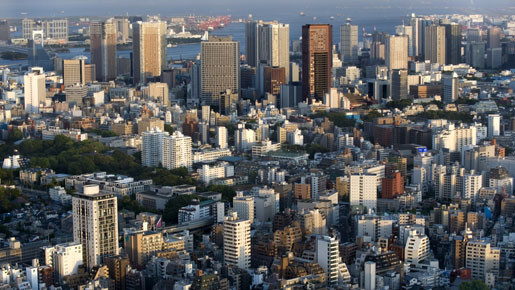
Annual inflation slowed to 0.9 percent in April, thanks to a short-lived cut in gasoline tax, but economists warned it was likely to bounce back to around 1.4 percent in May figures, raising the prospect of stagflation as Japan’s economy slows. Markets, eyeing the rising cost of living and Japan’s very low interest rates of 0.5 percent, are pricing in an interest rate increase over the next year, although the BOJ last month dropped its bias towards rate increases.
It is worried about the subprime housing crisis, which has already hit Japanese exports to the United States, and the effect of soaring oil and other raw material costs. “Prices are rising, but we need to note that they are hurting consumer sentiment at the same time,” said Takeshi Minami, chief economist at Norinchukin Research Institute. “Markets are worried about inflation and talk about a rate hike, but any premature rate rise could bring down the economy, so that should be tackled with a balanced approach.”
The surprise jump in the unemployment rate to 4.0 percent followed sharp layoffs in the construction sector, and economists pointed to further problems ahead — with the ratio of posts available to job applicants falling even further soon.Yields on two-year Japanese government bonds edged up as markets looked to an eventual rate hike next year, although the weak employment data capped the rise.
Markets are pricing in rate increases by the U.S. Federal Reserve and European Central Bank this year and by the Bank of Japan by the middle of next year, as rising commodity prices fan inflation. Japan’s economy has logged firm growth in the last two quarters, but analysts have warned of a downturn this year amid concern that the deepening U.S. economic troubles will spread.
“As it stands now, typical stagflation is emerging,” said Kyohei Morita, chief economist at Barclays Capital Japan, referring to high inflation in a stagnant economy. “But there is no panacea that helps both headache and stomachache.”
Petrol tax holiday
A recent dip in the annual inflation rate from 1.2 percent was largely due to a political row that stalled the renewal of a gasoline tax of 25 yen per litre. That gave motorists a month of lower gasoline prices before the government renewed the charge- just as soaring oil markets sent gasoline prices even higher.”The nationwide CPI looks set to rise to 1.4 percent or above, which will further hamper consumption,” said Junko Nishioka, an economist at ABN AMRO Securities.
Fuelling expectations for a higher figure for May’s core inflation, which excludes some volatile fresh food prices, was rising inflation in Tokyo, which reports consumer prices a month earlier than the rest of the country. In Tokyo, core annual inflation rose to 0.9 percent in May, from 0.7 percent. The rising prices are taking a toll on consumer spending.
Consumer sentiment has been sliding amid price hikes for beer, bread, noodles and many other groceries while wages remain generally stagnant and the job market stalls.
Jobs outlook weak
The employment outlook is also weak. The jobs-to-applicants ratio is nows 0.93, meaning 93 jobs are available per 100 applicants, a three-year low. Seasonally adjusted unemployment rose to a seven-month high of 4.0 percent, with a record decline in the number of workers in the construction sector compared with a year earlier. That may bounce back a little in soon as road construction dipped due to the uncertainty over the gasoline tax that helps fund it.
The outlook for the corporate sector, which has led Japan’s growth, is also wobbly, as the subprime housing crisis hits exports to the United States. Japan’s industrial output has dipped to 0.3 percent, although manufacturers forecast a 4.7 percent later in the year. Firm exports have underpinned Japan’s economic growth but corporate capital investment fell in the first quarter and economists said exports could also face a turnaround point in light of slowing global growth.
Housing starts in April fell 8.7 percent from the same month last year, due partly to the lingering impact of tighter building regulations implemented last June, marking the 10th straight month of decline. The BOJ last month ended its bias towards raising rates, saying the economic outlook was too uncertain to set a clear direction. Central bank governor Masaaki Shirakawa has repeatedly stressed downward risks to the economy, but markets do not expect a cut in Japan’s already low rates.

